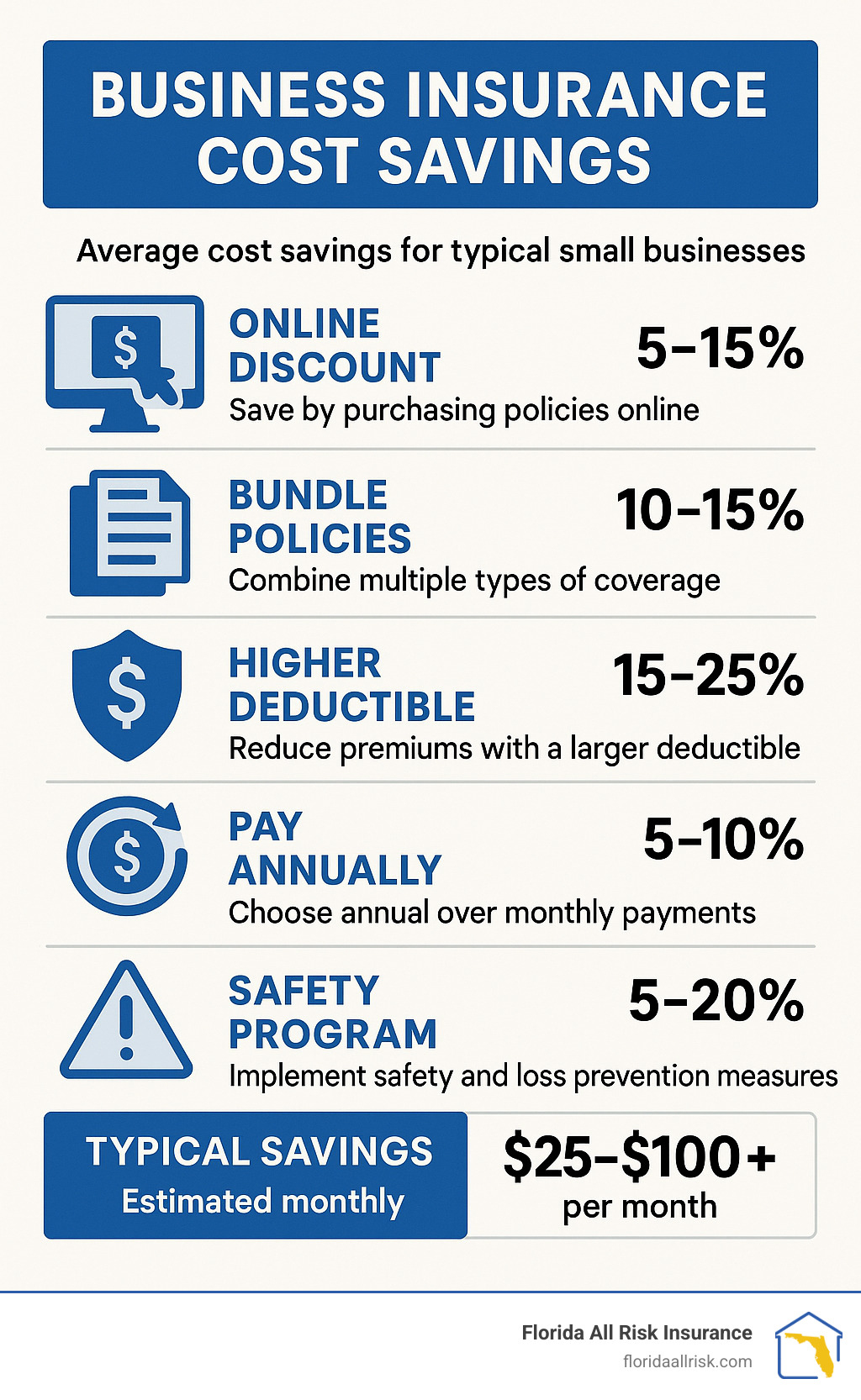In today’s fast-paced business world, safeguarding your company against unexpected risks is essential. But finding the right protection doesn’t have to drain your budget. Many entrepreneurs are learning how to unlock affordable corporate business insurance: save 30% today by making informed choices that balance coverage and cost.
Business insurance acts as a safety net, covering everything from property damage to liability claims. Without it, a single lawsuit or accident could jeopardize your operations. The good news is that with the right approach, you can secure robust policies at a fraction of the usual price, ensuring your enterprise thrives.
This guide explores practical ways to reduce insurance expenses while maintaining essential protections. We’ll cover key types of coverage, money-saving tips, and real-world examples. By the end, you’ll be equipped to make decisions that protect your bottom line.
Understanding Corporate Business Insurance Basics
Corporate business insurance encompasses various policies designed to shield companies from financial losses. It includes general liability, property, and workers’ compensation, among others. Each type addresses specific risks, helping businesses operate with peace of mind.
For small to medium-sized enterprises, these policies are often bundled into a business owner’s policy (BOP). This combination typically offers better value than purchasing separate plans. Understanding your company’s unique needs is the first step toward cost savings.
Many overlook the importance of tailoring coverage to their industry. For instance, a tech firm might prioritize cyber liability, while a retailer focuses on product liability. Assessing risks accurately prevents overpaying for unnecessary add-ons.
Why Insurance Costs Vary for Businesses
Insurance premiums depend on factors like location, industry, and company size. High-risk sectors, such as construction, often face higher rates due to potential hazards. Conversely, office-based businesses might enjoy lower costs.
Claims history plays a significant role too. Companies with few or no past claims can negotiate better deals. Insurers view them as lower risk, leading to discounted premiums.
Economic conditions also influence rates. In times of inflation, premiums might rise, but savvy shoppers can still find deals. Keeping an eye on market trends helps in timing your policy renewals effectively.
Strategies to Find Affordable Coverage
To unlock affordable corporate business insurance: save 30% today, start by comparing quotes from multiple providers. Online platforms make this process straightforward, allowing you to input details and receive instant estimates. This competition among insurers often results in lower offers.
Consider working with independent agents who represent various carriers. They can shop around on your behalf, uncovering hidden discounts. Their expertise ensures you get comprehensive coverage without gaps.
Digital tools and apps have revolutionized the insurance landscape. Many companies now offer quick quotes via user-friendly interfaces. This convenience not only saves time but also money through exclusive online discounts.
Bundling Policies for Maximum Savings
One of the most effective ways to cut costs is bundling multiple policies. A BOP combines general liability, property, and business interruption coverage into one package. This approach can reduce premiums by 10-20% or more.
Insurers reward bundling because it simplifies administration and increases customer loyalty. For example, adding workers’ comp to your BOP might qualify for additional rebates. Always check for these opportunities during quoting.
Beyond standard bundles, explore industry-specific packages. Some providers tailor options for niches like hospitality or e-commerce. These specialized plans often include relevant protections at competitive prices.
Tips to Save Up to 30% on Premiums
Implementing safety programs can significantly lower your rates. Insurers offer discounts for businesses that invest in employee training and risk management. Simple measures like installing security systems or conducting regular audits pay off.
Opting for higher deductibles is another proven tactic. By agreeing to cover more out-of-pocket in case of a claim, you reduce monthly premiums. This strategy works best for companies with strong cash reserves.
Paying annually instead of monthly avoids installment fees and often earns a discount. Many providers offer 5-10% off for upfront payments. This upfront commitment can lead to substantial long-term savings.
Shopping Around and Negotiating
Don’t settle for the first quote you receive. Gather at least three to five options from reputable companies like The Hartford or Insureon. Comparing apples-to-apples coverage reveals the best value.
Negotiation is key in the insurance world. Highlight your business’s strengths, such as a clean claims record or growth potential. Insurers may sweeten the deal to win your account.
Leverage online aggregators for broader comparisons. Sites like NerdWallet provide unbiased reviews and rate insights. These resources empower you to make data-driven decisions.
Common Pitfalls to Avoid When Buying Insurance
A frequent mistake is underinsuring to save money upfront. This leaves gaps that could prove costly during a crisis. Always aim for adequate limits based on your assets and risks.
Ignoring policy exclusions is another trap. Read the fine print to understand what’s not covered. For example, standard policies might exclude flood damage, requiring separate riders.
Failing to update policies as your business evolves can lead to overpayment or insufficient coverage. Annual reviews ensure your plan aligns with current operations. This proactive step prevents surprises.
Enhancing Your Business’s Risk Profile
Improving your company’s risk management directly impacts insurance costs. Conduct regular safety audits and train staff on best practices. Document these efforts to share with insurers for potential credits.
Adopting technology like AI-driven monitoring can further reduce risks. For high-hazard industries, this demonstrates commitment to safety. Insurers often reward such innovations with lower rates.
Building a strong relationship with your provider fosters ongoing savings. Loyal customers may access exclusive discounts or flexible terms. Open communication ensures your policy adapts to your needs.
Real-World Examples of Savings
Consider a small retail store that bundled its liability and property insurance. By switching to a BOP, they saved 25% annually. Adding online purchasing earned an extra 5% discount, totaling near 30%.
A tech startup focused on cyber risks implemented employee training programs. This not only minimized threats but also qualified them for a 15% premium reduction. Shopping around added another 10-15% in savings.
Even larger corporations benefit from these tactics. A manufacturing firm raised deductibles and paid annually, slashing costs by over 20%. Their proactive approach unlocked affordable corporate business insurance: save 30% today.
The Role of Professional Advice
Consulting an insurance broker brings invaluable expertise. They navigate complex options, ensuring you get tailored recommendations. This guidance often leads to better coverage at lower prices.
Brokers stay updated on industry changes and new discounts. Their insights can uncover savings you might miss. Plus, they handle paperwork, freeing you to focus on business growth.
For specialized needs, like international operations, expert input is crucial. They help integrate global protections seamlessly. This holistic view maximizes value across your portfolio.
In conclusion, unlocking affordable corporate business insurance: save 30% today is within reach for any business owner. By assessing needs, bundling policies, and shopping smartly, you can protect your company economically. Take action now—review your current plan and explore options to secure a brighter, more secure future for your enterprise.
What is corporate business insurance and why do I need it?
Corporate business insurance protects companies from financial losses due to risks like lawsuits, property damage, or employee injuries. It's essential because it safeguards your assets and ensures continuity during unforeseen events. Without it, a single incident could lead to significant out-of-pocket expenses or even closure.
How can I save up to 30% on business insurance premiums?
You can achieve savings by bundling policies, shopping around for quotes, and opting for higher deductibles. Implementing safety programs and paying annually also often qualify for discounts. Always compare multiple providers to find the best deals tailored to your needs.
What types of business insurance should I consider for my company?
Key types include general liability for third-party claims, property insurance for physical assets, and workers' compensation for employee-related issues. Depending on your industry, add-ons like cyber liability or professional liability might be necessary. Assess your specific risks to choose the right mix.
Is it better to buy business insurance online or through an agent?
Buying online offers convenience and potential discounts, making it ideal for straightforward needs. However, an agent provides personalized advice and negotiation power for complex situations. Consider a hybrid approach—start online and consult an expert for fine-tuning.
How often should I review my business insurance policy?
Review your policy annually or whenever your business undergoes changes, like expansion or new services. This ensures coverage remains adequate and cost-effective. Regular check-ins can also reveal new savings opportunities as your risk profile evolves.
What factors affect the cost of corporate business insurance?
Costs are influenced by your industry, location, company size, and claims history. Higher-risk operations typically pay more, while strong safety records lower premiums. Economic factors and policy customizations also play a role in determining rates.
Can small businesses really afford comprehensive insurance coverage?
Yes, small businesses can find affordable options through tailored plans and discounts. Providers like Insureon specialize in cost-effective solutions for startups. By focusing on essential protections, you can secure robust coverage without overspending.






Leave a Reply